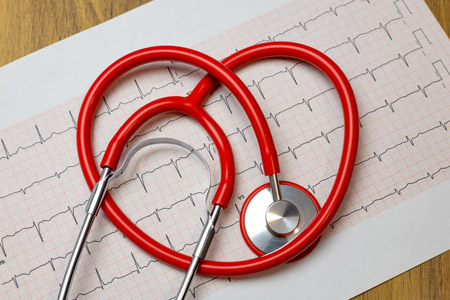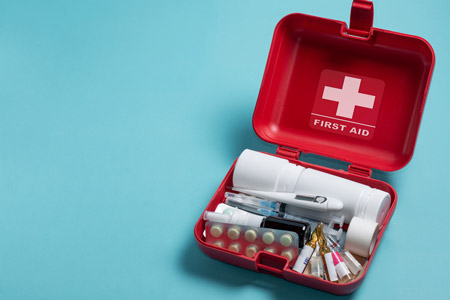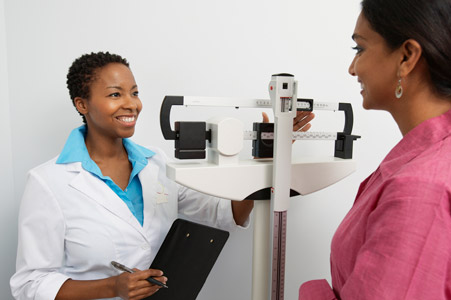


Primary Care, Urgent Care, and Emergency Care: Understanding the Difference
When you’re not feeling quite right, or very ill, you have options for where to seek care. In general, there are three different kinds of medical settings in which you can get seen by a provider: primary care, urgent care, and emergency care facilities.
Depending on what’s bothering you, it can be difficult to know which setting is best to address your needs. Can a sprained ankle wait for an appointment with your primary care doctor? When do you call emergency care?
In this article, we’ll cover the key differences between the three types of medical care centers and run through examples of illnesses or injuries that may be best treated at each of them.
Primary Care Centers
Primary care centers or general medical offices are centers where you will visit providers like your Primary Center Physician (PCP) and possibly specialists like your Optometrist, Ophthalmologist, OBGYN, and more.
These offices are for regularly scheduled wellness or preventative care visits, as well as for appointments to monitor chronic conditions and non-emergency or pressing concerns. You can also go to your PCP for sports physicals and other routine appointments. A good rule of thumb when narrowing down which care center you need to visit is, if it’s not an emergency, contact your PCP first. From there, they can book an appointment at their practice or suggest you head to urgent care for more timely treatment.
Keep in mind that most primary care centers are closed on weekends and after regular working hours, so if you have a pressing concern that cannot wait, head to urgent care, or in case of a life-threatening or serious situation, the emergency room.
Generally, these centers are best for checkups, yearly vaccinations, and routine exams.
Urgent Care Centers
Have an illness or issue that doesn’t feel life-threatening, but can’t wait for your PCP? Then urgent care might be a good option for you. Urgent care centers are generally open longer into the evening and more days of the week than primary care centers, making them ideal for uncomfortable illnesses and injuries. Additionally, it may be easier to get day-of or walk-in appointments at these centers.
If you’re unsure if what you’re experiencing qualifies as an emergency, check with a provider who can give you specific advice on which treatment center can best address your needs. Generally speaking, urgent care can help when you have minor injuries or sprains, the cold or flu, mild/ moderate gastrointestinal complaints (vomiting, nausea, or diarrhea), urinary tract infections, minor burns, minor rashes, or minor bug bites.
After visiting an urgent care center, it’s always a good idea to reach out to your PCP for follow-up!
Emergency Care Centers
If you or a family member are experiencing severe symptoms of any kind (especially in the case of pain, headaches, or gastrointestinal symptoms), it’s always a good idea to call 9-1-1 or emergency services. The operators and first responders can help recommend if you’ll need an ambulance to an emergency care center or if you can get there through other means.
Emergency care centers provide life-saving care or care for other illnesses or injuries in the event that primary care and urgent care facilities are closed. Emergency centers are generally open 24/7, 365 days a year.
While not a comprehensive list, it’s often recommended that you call 9-1-1 or head to the emergency room if you’re experiencing chest pain, having trouble breathing, think you’re having a stroke, passing out, bleeding uncontrollably, or if you have a broken bone or large wound if you’ve experienced head trauma, if you’ve had a seizure, if you’ve ingested poison, if you have a severe burn, if you’ve been in a serious accident, or if you’re having a mental health emergency.
Additionally, if you or a family member have been in a critical car accident or have sustained a gunshot wound, first responders will transport you to a special kind of emergency center that can provide what’s called trauma care.
Always remember to reach out to a medical provider no matter what you’re experiencing so they can give you specific advice and direct you to the center that will get you the care you need.
The information on this site is for informational purposes only and should not replace direct medical advice, diagnosis, or treatment from your doctor or another qualified healthcare provider.
Sources:
“Emergency Department (ER), Urgent Care or Express Care: Which Do You Need?” Cleveland Clinic.



















.jpg)





















.jpg)

















.jpg)


























.jpg)
.jpg)
.jpg)













